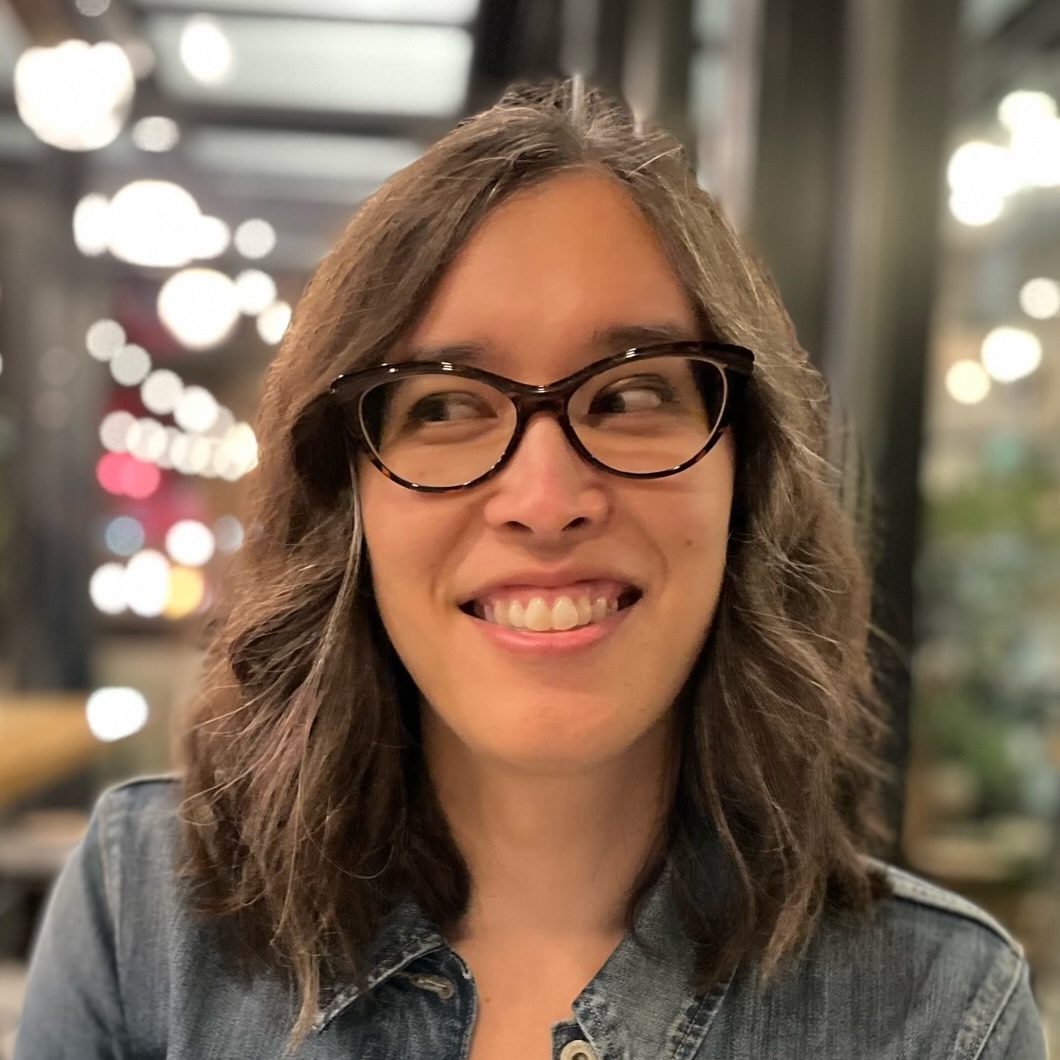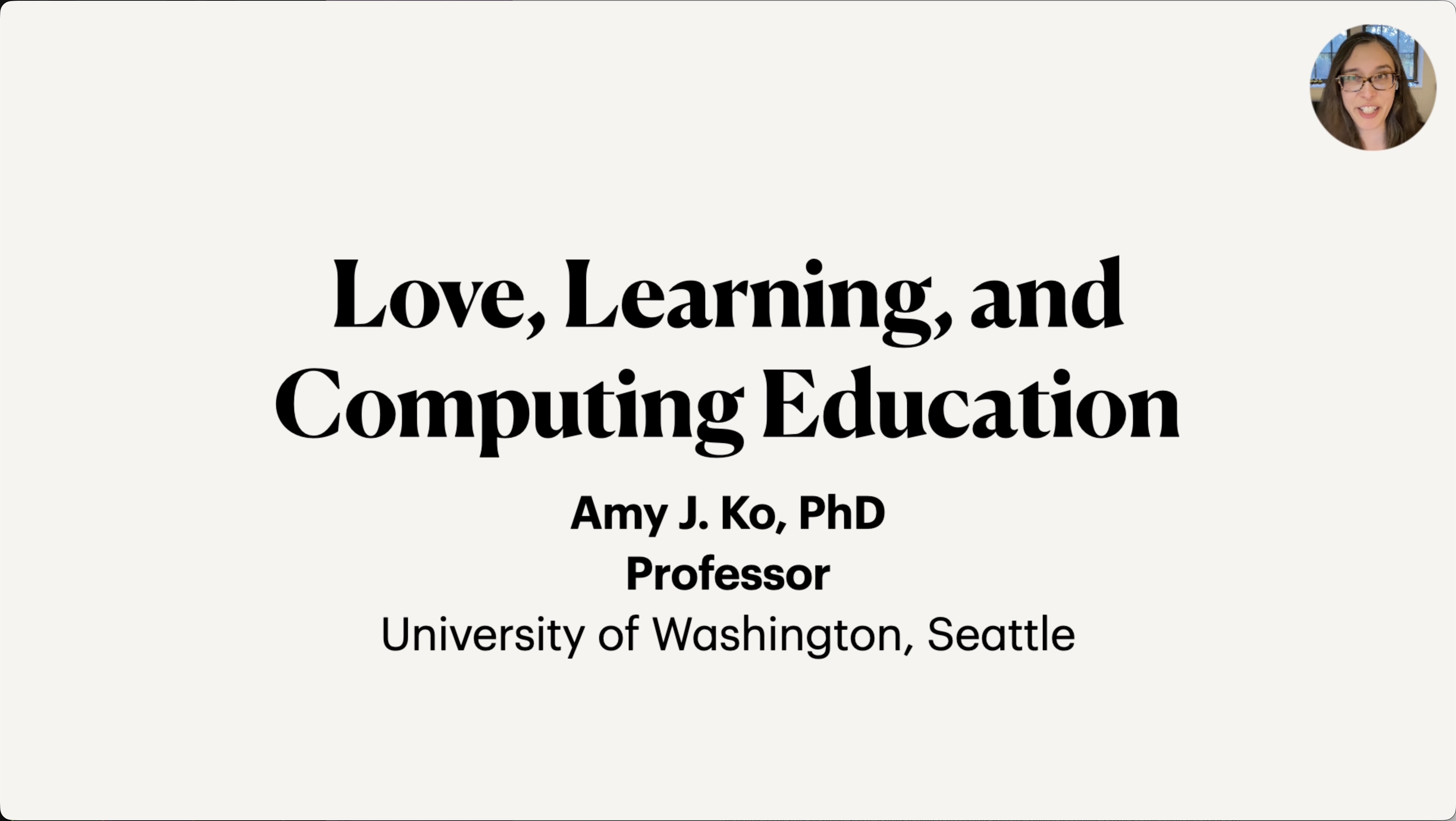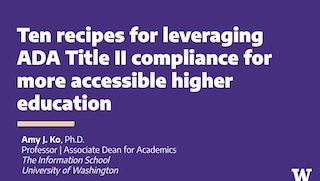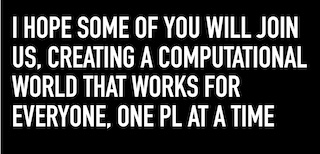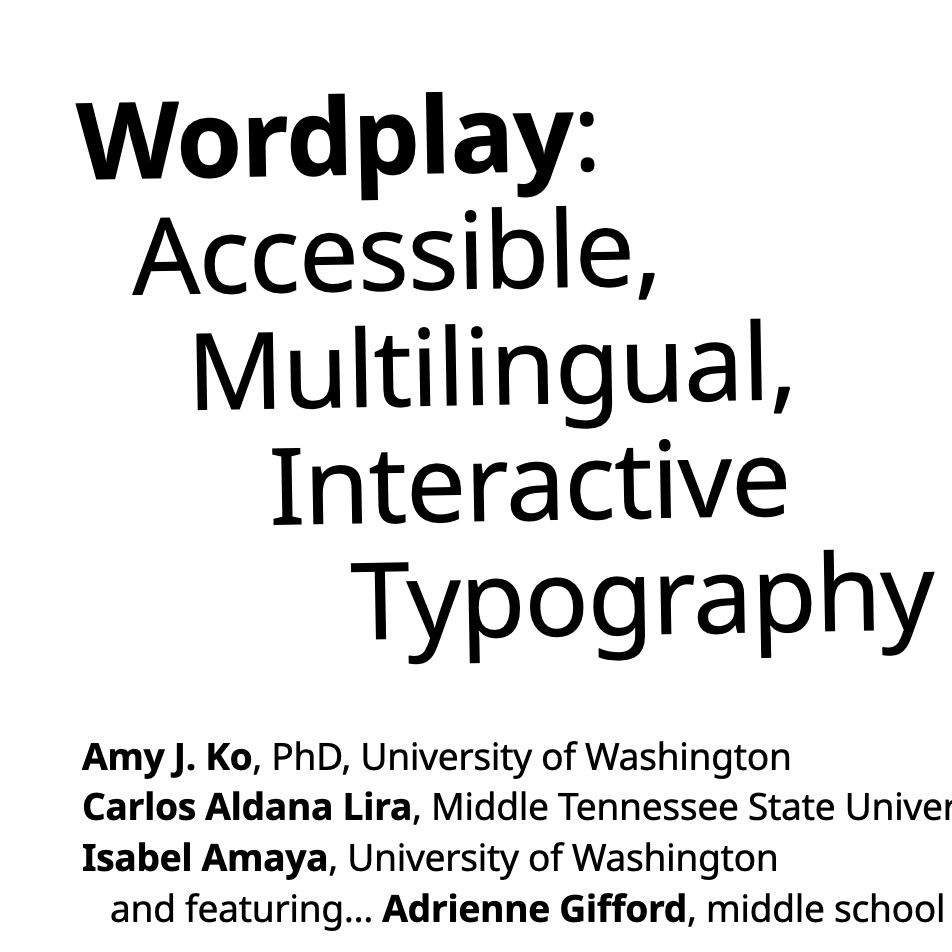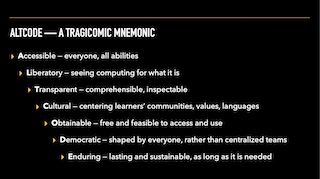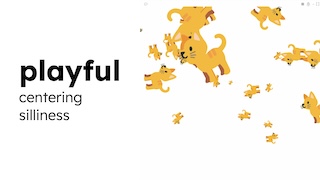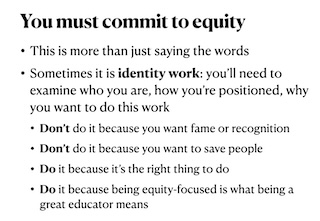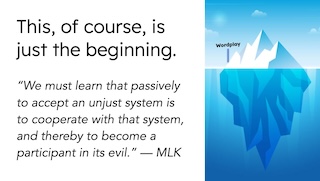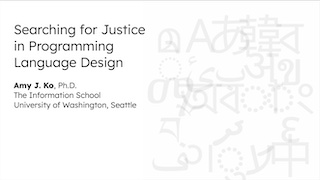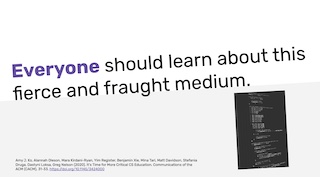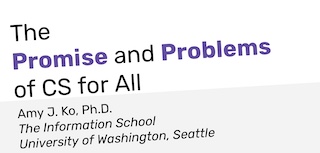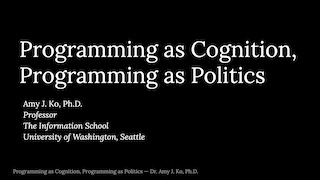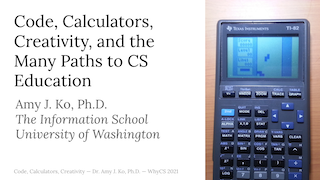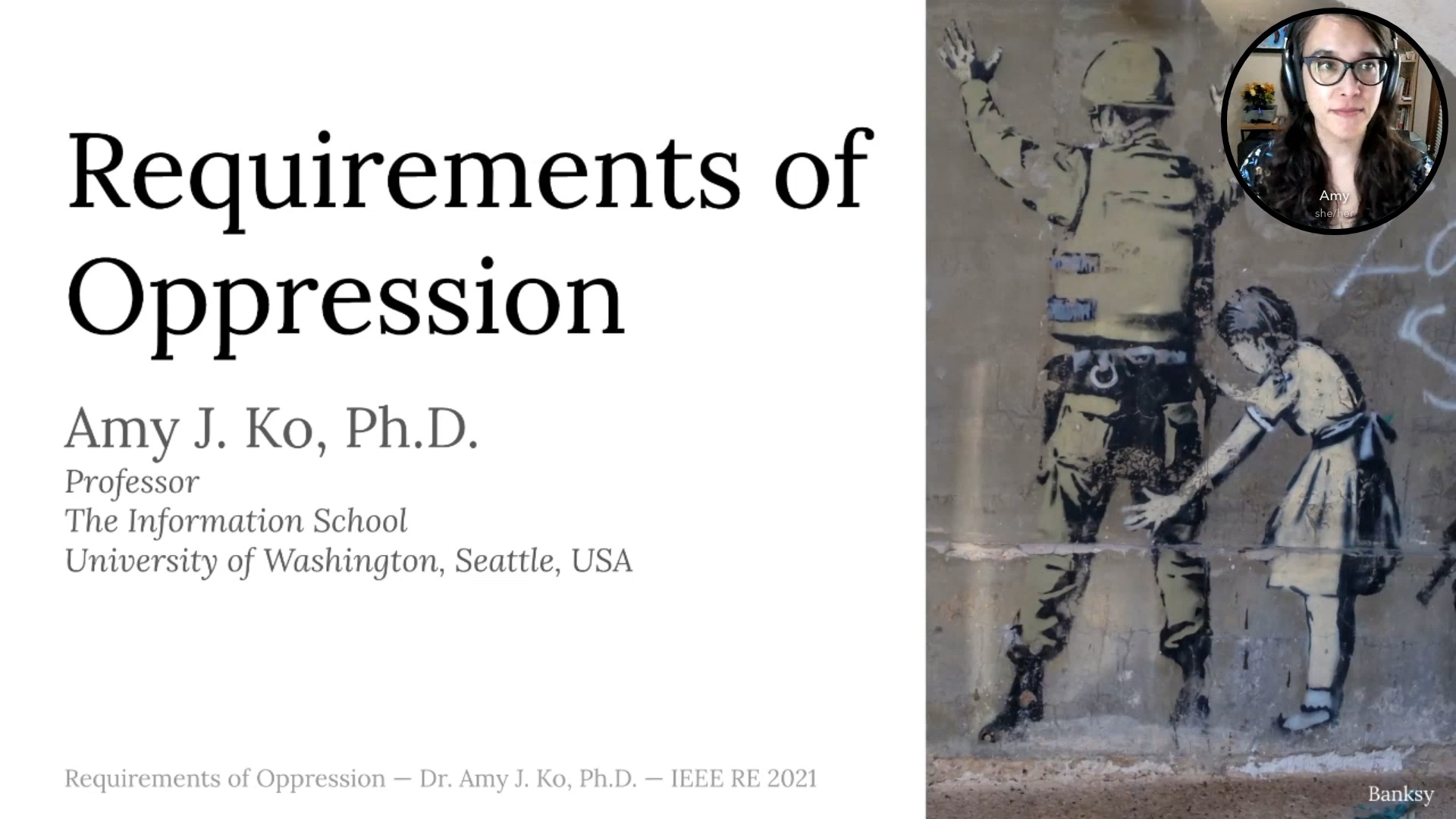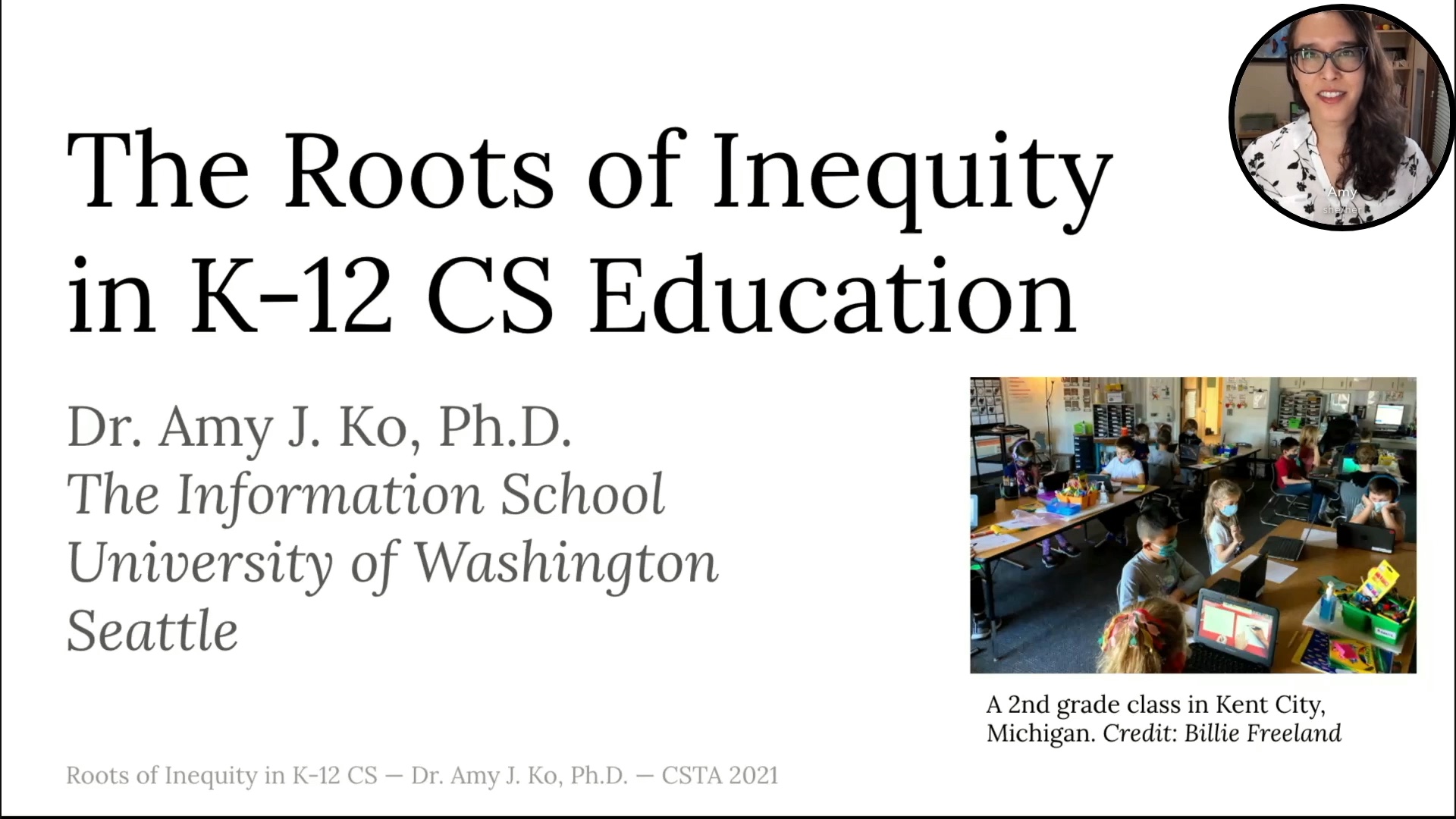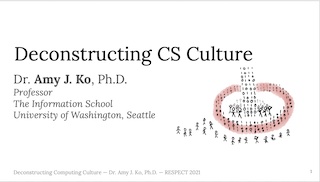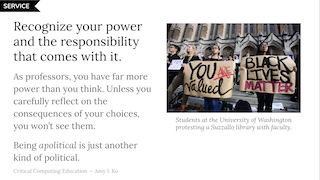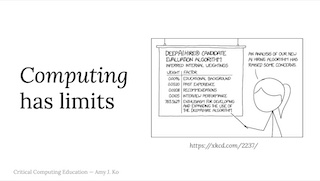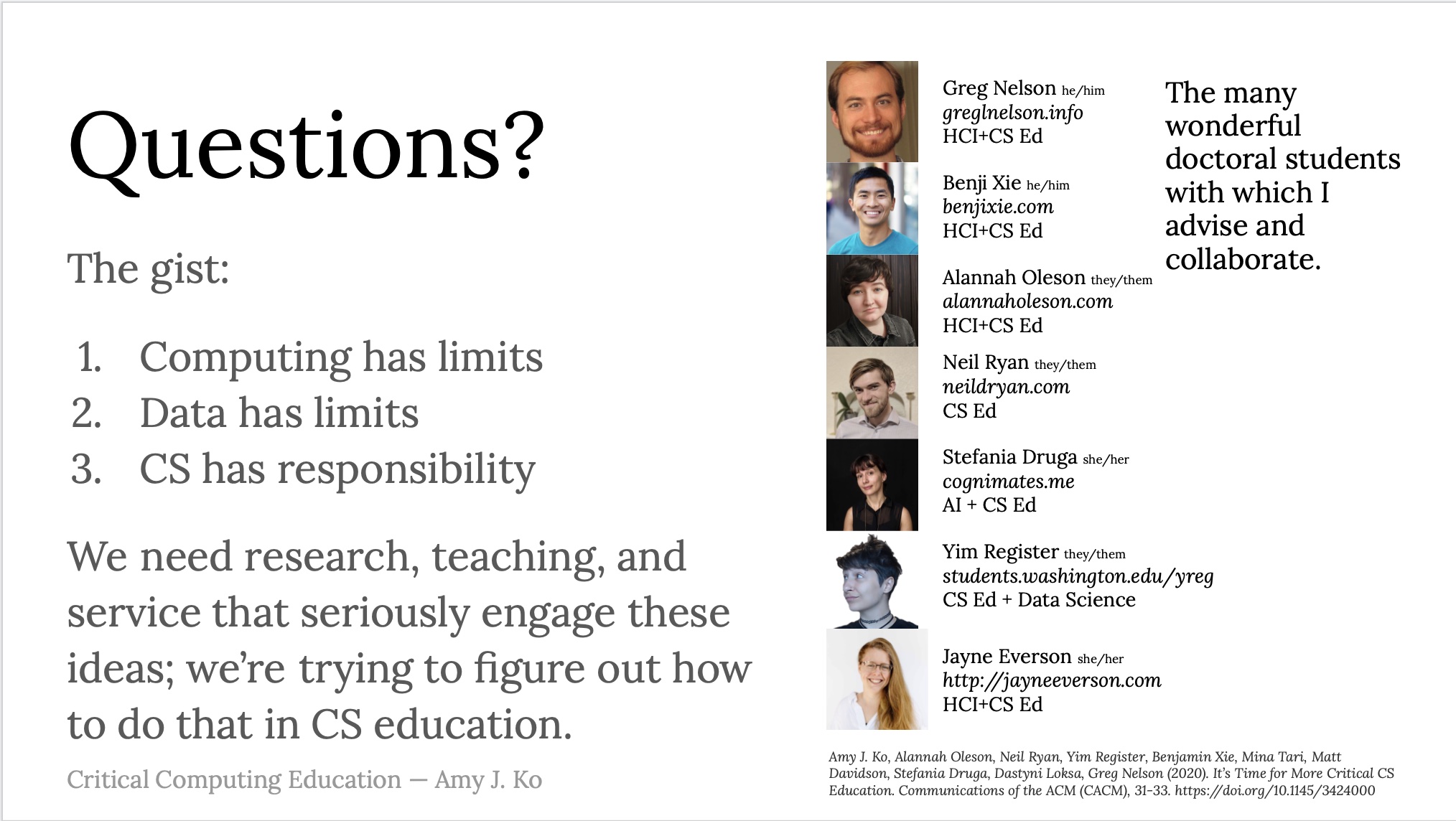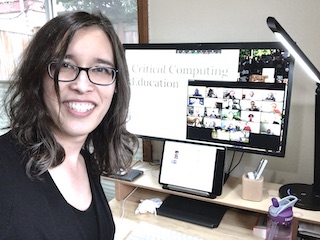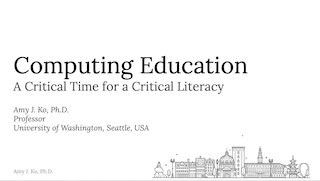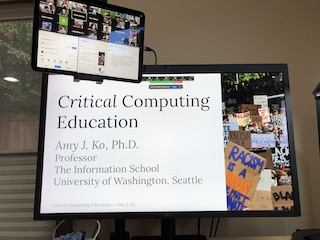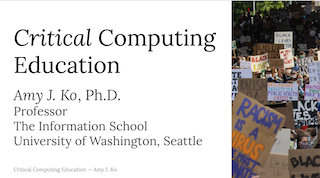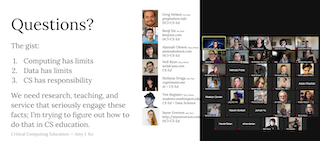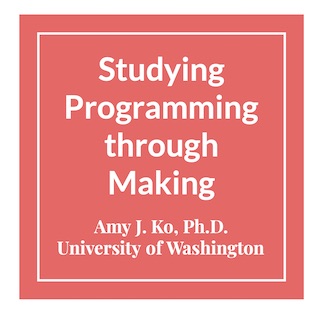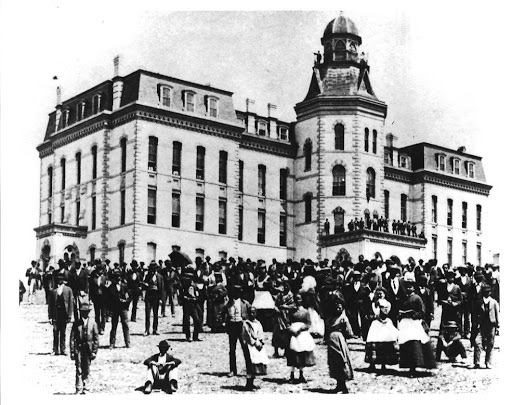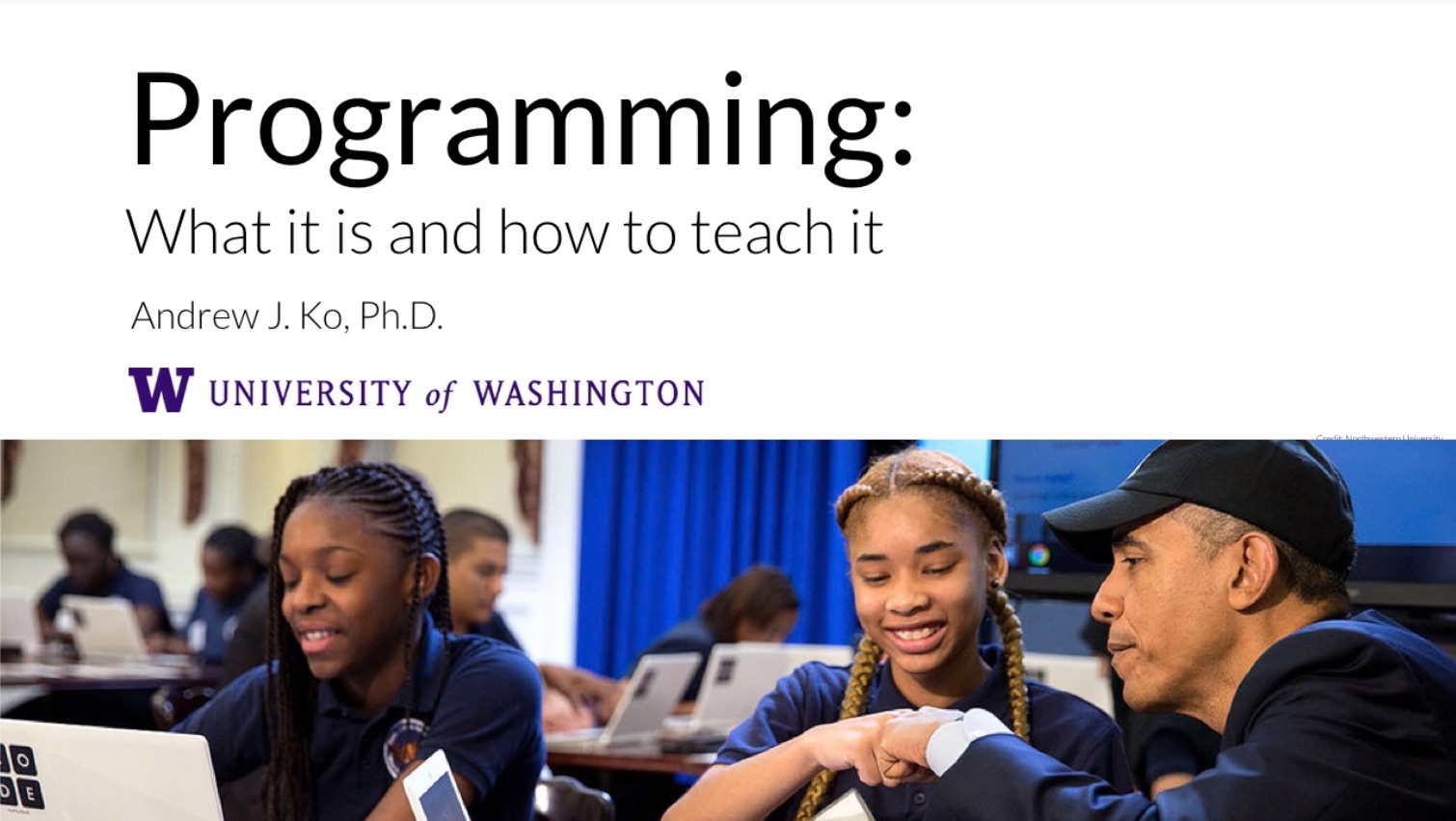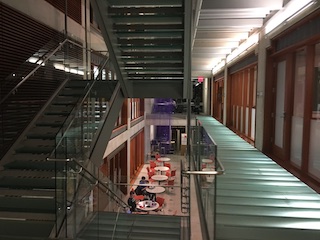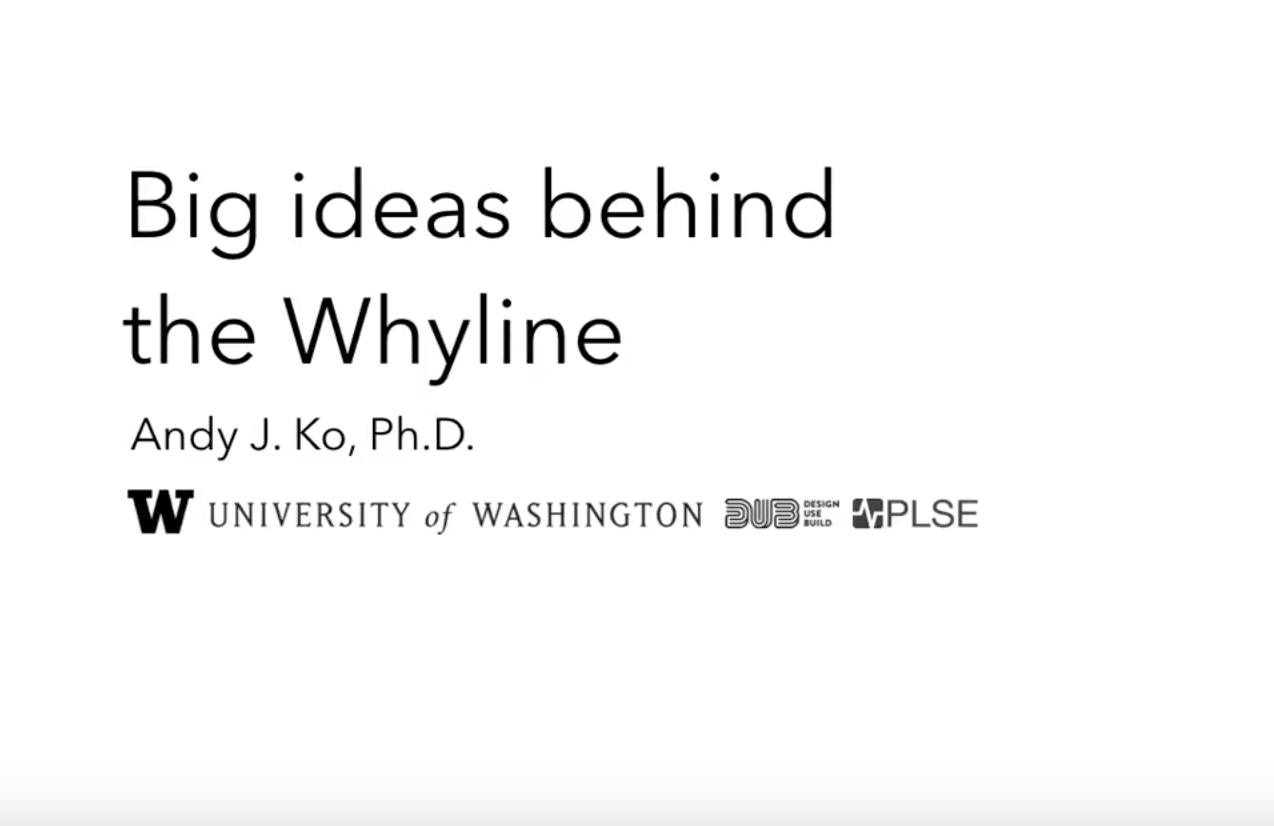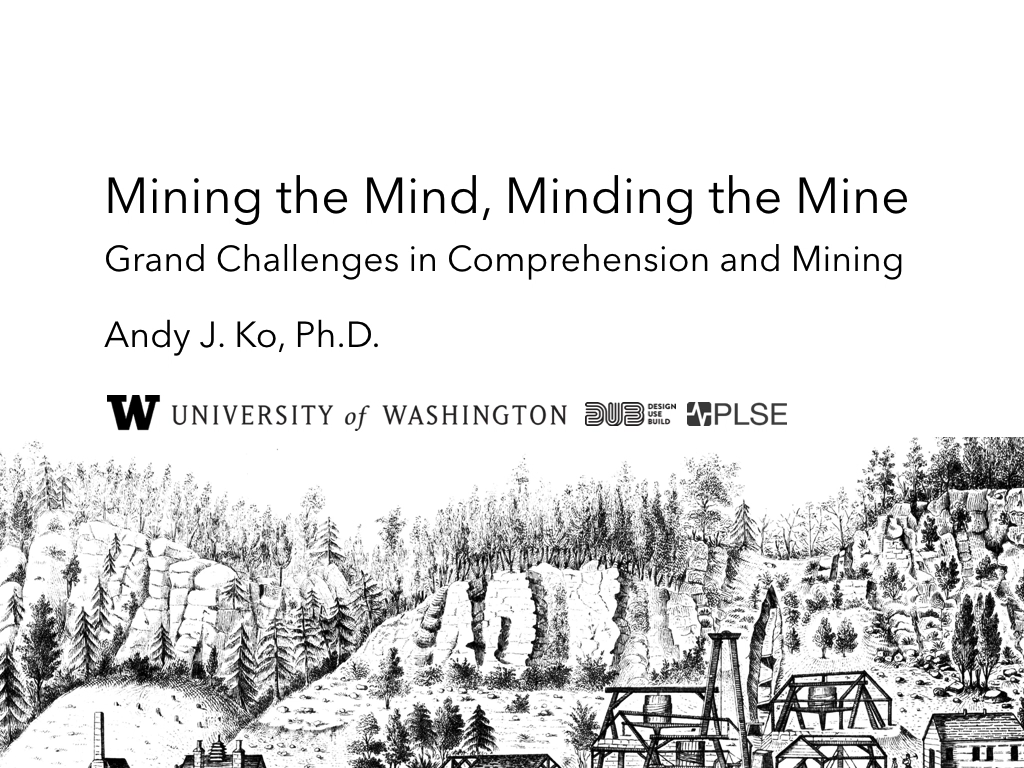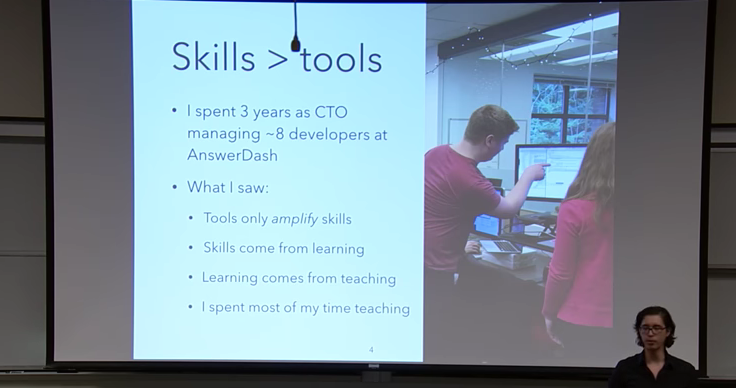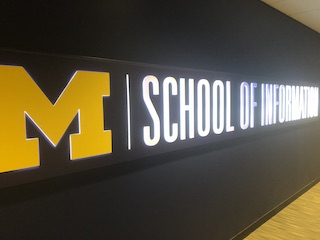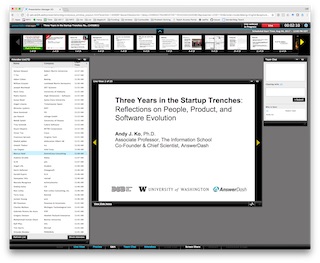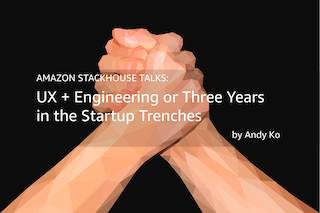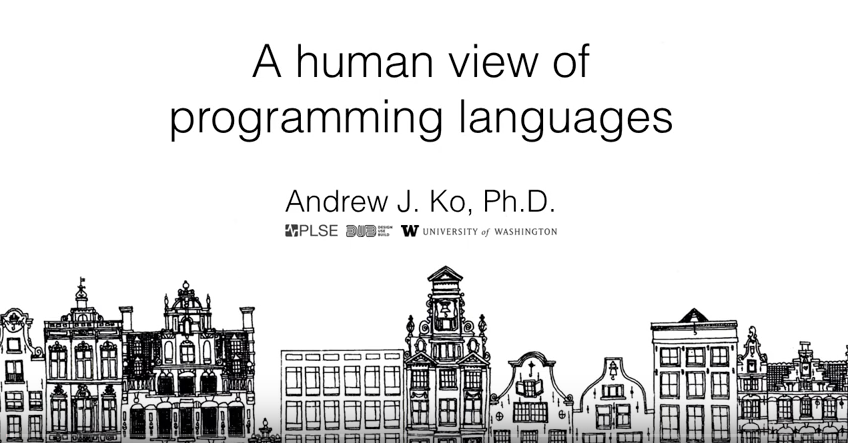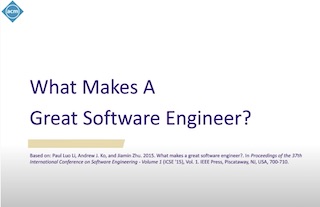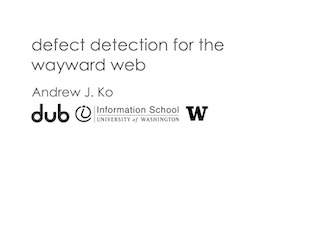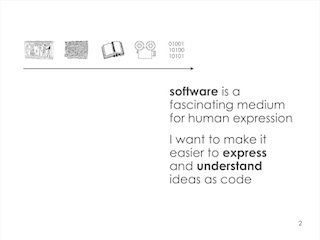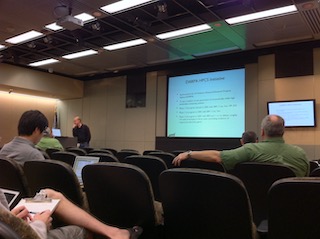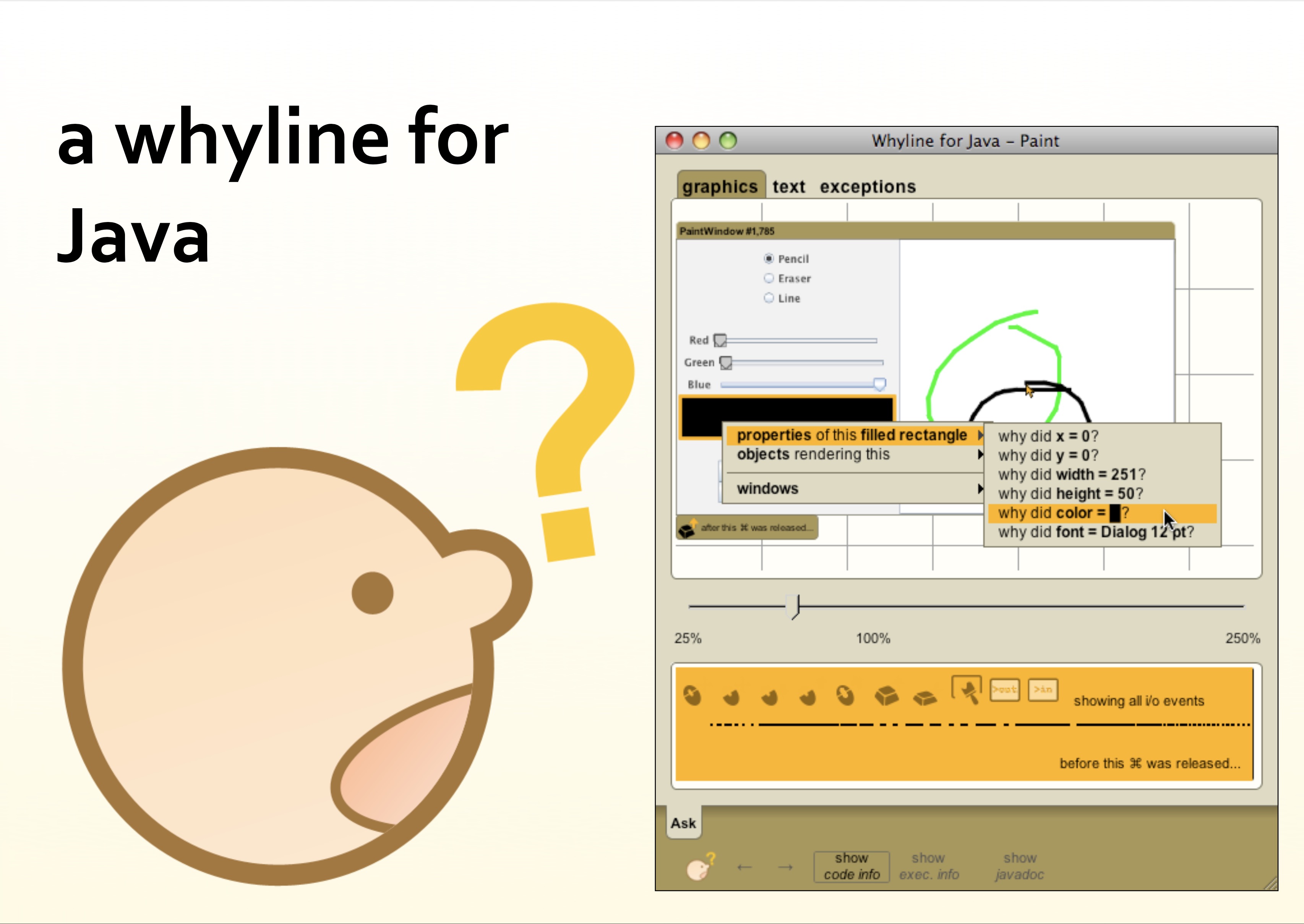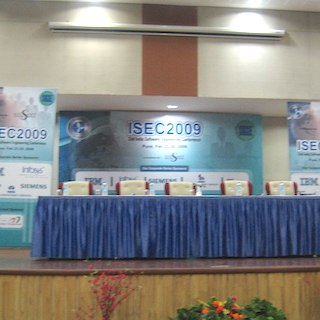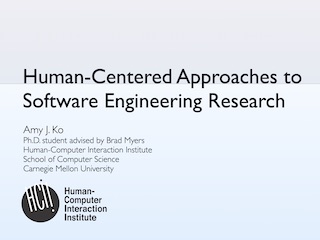These are my upcoming and past keynotes and invited talks.
2026 🔗︎
Love, Learning, and Computing Education
★ Keynote
2026 ACM SIGCSE Technical Symposium
Feb 18, 2026
I'll be giving a keynote broadly about equity and justice in computing education.
★ Keynote
2026 ACM SIGCSE Technical Symposium
Feb 18, 2026
I'll be giving a keynote broadly about equity and justice in computing education.
2025 🔗︎
Ten recipes for leveraging ADA Title II compliance for more accessible higher education
★ Keynote
ASSETS workshop; Teaching Accessibility Across Disciplines: Perspectives From ADA Title II
Oct 22, 2025
I spoke about systems change in accessibility and disability justice in higher education.
★ Keynote
ASSETS workshop; Teaching Accessibility Across Disciplines: Perspectives From ADA Title II
Oct 22, 2025
I spoke about systems change in accessibility and disability justice in higher education.
Justice-Centered Educational Programming Languages
Lewis and Clark College
Oct 3, 2025
I repreised my talk on justice-centered programming languages, and shared the design principles behind designing education programming languages in justice-centered ways.
Lewis and Clark College
Oct 3, 2025
I repreised my talk on justice-centered programming languages, and shared the design principles behind designing education programming languages in justice-centered ways.
Wordplay: Accessible, Multilingual, Interactive Typography
2025 ACM CHI Conference on Human Factors in Computing Systems
Apr 28, 2025
I present Wordplay, its design principles, and a focus group evaluation of its tensions between language and ability inclusion, amongst other aspects of justice.
2025 ACM CHI Conference on Human Factors in Computing Systems
Apr 28, 2025
I present Wordplay, its design principles, and a focus group evaluation of its tensions between language and ability inclusion, amongst other aspects of justice.
Justice-Centered Educational Programming Languages
Berkeley EECS Colloqium
Apr 16, 2025
I connect theories of justice to the design of educational programming languages.
Berkeley EECS Colloqium
Apr 16, 2025
I connect theories of justice to the design of educational programming languages.
2024 🔗︎
Justice-Centered Educational Programming Languages
Harvey Mudd and Pomona College, joint colloqium
Nov 22, 2024
I connect theories of justice to the design of educational programming languages.
Harvey Mudd and Pomona College, joint colloqium
Nov 22, 2024
I connect theories of justice to the design of educational programming languages.
Liberatory Futures for Computing Literacy
NCWIT Summit 2024
May 21, 2024
I discuss the intersectional needs of trans youth in schools, and what implications that has for serving all youth in computing education.
NCWIT Summit 2024
May 21, 2024
I discuss the intersectional needs of trans youth in schools, and what implications that has for serving all youth in computing education.
Searching for Justice in Programming Language Design
Cal State Sonoma
Mar 25, 2024
I share a vision for justice-centered programming languages and detail how Wordplay strives to achieve it.
Cal State Sonoma
Mar 25, 2024
I share a vision for justice-centered programming languages and detail how Wordplay strives to achieve it.
Building a Community of Equity-Focused CS Educators
SIGCSE Technical Symposium 2024
Mar 21, 2024
In this talk I try to scaffold how to do equity-centered change work in academia, and in computing in particular.
SIGCSE Technical Symposium 2024
Mar 21, 2024
In this talk I try to scaffold how to do equity-centered change work in academia, and in computing in particular.
Searching for Justice in Programming Language Design
L'Université du Québec à Montréal
Feb 21, 2024
I share a vision for justice-centered programming languages and detail how Wordplay strives to achieve it.
L'Université du Québec à Montréal
Feb 21, 2024
I share a vision for justice-centered programming languages and detail how Wordplay strives to achieve it.
2023 🔗︎
Searching for Justice in Programming Language Design
University of Michigan
May 2, 2023
I examine what it might mean to center justice in programming language design, and unveal Wordplay.dev, a creative coding platform striving for equity and justice in accessibility and natural language.
University of Michigan
May 2, 2023
I examine what it might mean to center justice in programming language design, and unveal Wordplay.dev, a creative coding platform striving for equity and justice in accessibility and natural language.
Searching for Justice in Programming Language Design
HCI Institute, Carnegie Mellon
Apr 21, 2023
I examine what it might mean to center justice in programming language design, and unveal Wordplay.dev, a creative coding platform striving for equity and justice in accessibility and natural language.
HCI Institute, Carnegie Mellon
Apr 21, 2023
I examine what it might mean to center justice in programming language design, and unveal Wordplay.dev, a creative coding platform striving for equity and justice in accessibility and natural language.
2022 🔗︎
The Promise and Problems of CS for All
CSAIL, MIT
Oct 25, 2022
A revised version of my SFU talk, which motivates the need for computing literacy, talks about my lab's recent discoveries, and challenges us to have broader visions of computing in education.
CSAIL, MIT
Oct 25, 2022
A revised version of my SFU talk, which motivates the need for computing literacy, talks about my lab's recent discoveries, and challenges us to have broader visions of computing in education.
The Promise and Problems of CS for All
Simon Fraser University, British Columbia, Canada
Sep 20, 2022
I make the case for computing literacy, sample from my lab's many discoveries over the past decade, and call the audience to action to contribute.
Simon Fraser University, British Columbia, Canada
Sep 20, 2022
I make the case for computing literacy, sample from my lab's many discoveries over the past decade, and call the audience to action to contribute.
2021 🔗︎
Programming as Cognition, Programming as Politics
University of Colorado Boulder, Institute for Cognitive Science
Nov 19, 2021
In this talk, I survey my 20 years of research on programming, some of which has framed it as a distributed sociocognitive activity, and some of which has framed it as a political activity. I reconcile these two perspectives by rejecting the dichotomy, and advocating for work that considers them in tandem.
University of Colorado Boulder, Institute for Cognitive Science
Nov 19, 2021
In this talk, I survey my 20 years of research on programming, some of which has framed it as a distributed sociocognitive activity, and some of which has framed it as a political activity. I reconcile these two perspectives by rejecting the dichotomy, and advocating for work that considers them in tandem.
Code, Calculators, Creativity, and the Many Paths to CS Education
★ Keynote
2021 Washington State Why CS Summit
Oct 22, 2021
In this short keynote, I shared my path to computing and then make the case for many paths to computing through student interests.
★ Keynote
2021 Washington State Why CS Summit
Oct 22, 2021
In this short keynote, I shared my path to computing and then make the case for many paths to computing through student interests.
Requirements of Oppression
★ Keynote
2021 IEEE International Requirements Engineering Conference
Sep 22, 2021
This keynote argues that requirements are the central way that software models the matrix of oppression, and that to be anti-oppressive, requirements engineering must center the margins, humanity, and activism in its work.
★ Keynote
2021 IEEE International Requirements Engineering Conference
Sep 22, 2021
This keynote argues that requirements are the central way that software models the matrix of oppression, and that to be anti-oppressive, requirements engineering must center the margins, humanity, and activism in its work.
The Roots of Inequity in K-12 CS Education
★ Keynote
2021 CSTA Conference
Jul 15, 2021
This is a keynote I gave the CS Teachers Association (CSTA) annual conference. It discusses the many interacting layers of inequity in K-12 CS education, including many of my own personal experiences discovering inequities in schools that I or others have created. It also offers suggestions to teachers about how they can participate in identifying and dismantling barriers.
★ Keynote
2021 CSTA Conference
Jul 15, 2021
This is a keynote I gave the CS Teachers Association (CSTA) annual conference. It discusses the many interacting layers of inequity in K-12 CS education, including many of my own personal experiences discovering inequities in schools that I or others have created. It also offers suggestions to teachers about how they can participate in identifying and dismantling barriers.
Deconstructing CS Culture
★ Keynote
2021 IEEE RESPECT Conference
May 27, 2021
This talk examined the hidden marginalization that led to the CS culture we have today, discussing CS history, Autism, immigration, queer refuges, segregation, desegregation, capitalism, and more.
★ Keynote
2021 IEEE RESPECT Conference
May 27, 2021
This talk examined the hidden marginalization that led to the CS culture we have today, discussing CS history, Autism, immigration, queer refuges, segregation, desegregation, capitalism, and more.
Critical Computing Education
Digital Learning Lab, University of California, Irvine
Apr 16, 2021
This was the seventh time I gave my talk on critical computing education. In this version, I revised the slides to speak more to a learning sciences and education audience.
Digital Learning Lab, University of California, Irvine
Apr 16, 2021
This was the seventh time I gave my talk on critical computing education. In this version, I revised the slides to speak more to a learning sciences and education audience.
Critical Computing Education
California Institute of Technology, Computing and Mathematical Sciences, Keller Colloquium
Mar 1, 2021
This was the sixth time I gave my talk on critical computing education. In this version, I updated the research slides with new papers and evidence.
California Institute of Technology, Computing and Mathematical Sciences, Keller Colloquium
Mar 1, 2021
This was the sixth time I gave my talk on critical computing education. In this version, I updated the research slides with new papers and evidence.
Critical Computing Education
University of California, Davis, Computer Science, Computing Education Research at Davis Seminar
Feb 12, 2021
This was the fifth time I gave my talk on critical computing education. In this version, I updated the research slides with new papers and evidence.
University of California, Davis, Computer Science, Computing Education Research at Davis Seminar
Feb 12, 2021
This was the fifth time I gave my talk on critical computing education. In this version, I updated the research slides with new papers and evidence.
2020 🔗︎
Critical Computing Education
University of Pennsylvania, Computer and Information Science, Seminar Series
Nov 10, 2020
This was the fourth time I gave my Autumn 2020 talk on critical computing education. In this version, I selected examples more situated in Philadelphia's history.
University of Pennsylvania, Computer and Information Science, Seminar Series
Nov 10, 2020
This was the fourth time I gave my Autumn 2020 talk on critical computing education. In this version, I selected examples more situated in Philadelphia's history.
Computing Education: A Critical Time for a Critical Literacy
★ Keynote
IT University of Copenhagen
Nov 5, 2020
I was invited to give a short keynote at the IT University of Copenhagen's inauguration of Center for Computing Education Research (CCER). Michael Caspersen and Simon Peyton Jones also spoke.
★ Keynote
IT University of Copenhagen
Nov 5, 2020
I was invited to give a short keynote at the IT University of Copenhagen's inauguration of Center for Computing Education Research (CCER). Michael Caspersen and Simon Peyton Jones also spoke.
Critical Computing Education
Carnegie Mellon University, HCI Institute, Seminar Series
Oct 30, 2020
This was the third time I gave my Autumn 2020 talk on critical computing education. In this version, I linked my framing to my time as a graduate student at Carnegie Mellon.
Carnegie Mellon University, HCI Institute, Seminar Series
Oct 30, 2020
This was the third time I gave my Autumn 2020 talk on critical computing education. In this version, I linked my framing to my time as a graduate student at Carnegie Mellon.
Critical Computing Education
University of Virginia, Computer Science Distinguished Speaker Series
Oct 21, 2020
This was the second time I gave my Autumn 2020 talk on critical computing education. In this version, I expanded discussion of my lab's research and strengthened the call to action.
University of Virginia, Computer Science Distinguished Speaker Series
Oct 21, 2020
This was the second time I gave my Autumn 2020 talk on critical computing education. In this version, I expanded discussion of my lab's research and strengthened the call to action.
Critical Computing Education
University of Colorado joint Colloqium of the Department of Information Science and College of Media, Communication and Information
Oct 7, 2020
This was the first in a series of talks about my research pivot on critical computing education. In it, I argue for the need for universal literacy about the limits of computing, the limits of data, and the responsibilty of computer science to teach these limits. I shared recent examples of research from our lab that's beginning to explore how to teach these limits.
University of Colorado joint Colloqium of the Department of Information Science and College of Media, Communication and Information
Oct 7, 2020
This was the first in a series of talks about my research pivot on critical computing education. In it, I argue for the need for universal literacy about the limits of computing, the limits of data, and the responsibilty of computer science to teach these limits. I shared recent examples of research from our lab that's beginning to explore how to teach these limits.
Studying Programming through Making
2020 PL+HCI Swimmer School
Aug 3, 2020
I gave this invited presentation on August 3rd, to at the 2020 PL+HCI "Swimmer School". The overarching goal was to explain how user studies shape our understanding of what we make; it also served as a retrospective of my dissertation work on the Whyline.
2020 PL+HCI Swimmer School
Aug 3, 2020
I gave this invited presentation on August 3rd, to at the 2020 PL+HCI "Swimmer School". The overarching goal was to explain how user studies shape our understanding of what we make; it also served as a retrospective of my dissertation work on the Whyline.
CS Education in Higher Education
Microsoft
Jun 15, 2020
I gave this presentation to Microsoft on June 15th; they were engaging in design envisioning to support CS teaching and wanted some background on it and how the pandemic was affecting it. I used it as an opportunity to talk about the racist and sexist history of higher education, of CS in higher education, the ways that CS pedagogy have failed to include all students, and how the pandemic has amplified these failures. I shared it on Twitter, which led to considerable sharing, solidatory, and outrage. I intentionally did not include citations for my claims because scientific evidence tends to be weaponized by those do not believe that racism or sexism exists; instead, I included a link pointing to the body of literature supporting the claims.
Microsoft
Jun 15, 2020
I gave this presentation to Microsoft on June 15th; they were engaging in design envisioning to support CS teaching and wanted some background on it and how the pandemic was affecting it. I used it as an opportunity to talk about the racist and sexist history of higher education, of CS in higher education, the ways that CS pedagogy have failed to include all students, and how the pandemic has amplified these failures. I shared it on Twitter, which led to considerable sharing, solidatory, and outrage. I intentionally did not include citations for my claims because scientific evidence tends to be weaponized by those do not believe that racism or sexism exists; instead, I included a link pointing to the body of literature supporting the claims.
2019 🔗︎
21st Century Grand Challenges in Computing Education
★ Keynote
2019 Koli Calling Computing Education Research Conference
Nov 22, 2019
I gave this keynote at the 2019 Koli Calling conference, a computing education research conference in beautiful Koli National Park. In it, I argued that to address epistemic challenges such as climate change and stabilizing democracies, everyone in the world needs to learn the limits of computing, social responsibility with computing, data literacy, and diversity literacy.
★ Keynote
2019 Koli Calling Computing Education Research Conference
Nov 22, 2019
I gave this keynote at the 2019 Koli Calling conference, a computing education research conference in beautiful Koli National Park. In it, I argued that to address epistemic challenges such as climate change and stabilizing democracies, everyone in the world needs to learn the limits of computing, social responsibility with computing, data literacy, and diversity literacy.
Programming: What it is and How to Teach it
ETH Zurich Computer Science
May 1, 2019
I gave this invited talk in 2019 at ETH Zurich's CS department. I shared my lab's latest research on programming, including programming language learning, API learning, programming problem solving, and programming strategies.
ETH Zurich Computer Science
May 1, 2019
I gave this invited talk in 2019 at ETH Zurich's CS department. I shared my lab's latest research on programming, including programming language learning, API learning, programming problem solving, and programming strategies.
2018 🔗︎
Learning to Code: Why We Fail, How We Flourish
Northwestern University, CS+X Colloquium
Oct 30, 2018
I summarized our latest research on the learning to code and visited with HCI, CS education, and learning sciences faculty.
Northwestern University, CS+X Colloquium
Oct 30, 2018
I summarized our latest research on the learning to code and visited with HCI, CS education, and learning sciences faculty.
Big Ideas Behind the Whyline
2018 International Conference on Software Engineering
Jun 1, 2018
I gave this talk in 2018 in recognition for my most influential paper award on my dissertation work on the Whyline. I reflected on the ideas, both technical, scientific, and otherwise that have shaped my discoveries.
2018 International Conference on Software Engineering
Jun 1, 2018
I gave this talk in 2018 in recognition for my most influential paper award on my dissertation work on the Whyline. I reflected on the ideas, both technical, scientific, and otherwise that have shaped my discoveries.
Mining the Mind, Minding the Mine: Grand Challenges in Comprehension and Mining
★ Keynote
2018 International Conference on Mining Software Repositories and International Conference on Program Comprehension
May 28, 2018
I gave this invited joint keynote at the 2018 International Conference on Mining Software Repositories, and the International Conference on Program Comprehension. I argued that the two areas need each other, that they both need theory, and that they both need to ask more relevant questions.
★ Keynote
2018 International Conference on Mining Software Repositories and International Conference on Program Comprehension
May 28, 2018
I gave this invited joint keynote at the 2018 International Conference on Mining Software Repositories, and the International Conference on Program Comprehension. I argued that the two areas need each other, that they both need theory, and that they both need to ask more relevant questions.
Learning to Code: Why We Fail, How We Flourish
Stanford University, HCI Seminar
Jan 12, 2018
I summarized our latest research on the learning to code and visited with the HCI faculty at Stanford.
Stanford University, HCI Seminar
Jan 12, 2018
I summarized our latest research on the learning to code and visited with the HCI faculty at Stanford.
2017 🔗︎
Learning to Code: Why We Fail, How We Flourish
University of Michigan, MISC Seminar
Dec 4, 2017
I summarized my lab's latest research on the learning to code.
University of Michigan, MISC Seminar
Dec 4, 2017
I summarized my lab's latest research on the learning to code.
Three Years in the Startup Trenches: Reflections on People, Product, and Software Evolution
ACM Learning Center Webinar
Oct 9, 2017
I gave this invited talk to about 130 engineers who attended the webinar live.
ACM Learning Center Webinar
Oct 9, 2017
I gave this invited talk to about 130 engineers who attended the webinar live.
Three Years in the Startup Trenches
Amazon Stackhouse Talks
Feb 21, 2017
Amazon UX designers invited me to give a talk at the Stackhouse series; there were about 150 UX designers and engineers in attendance.
Amazon Stackhouse Talks
Feb 21, 2017
Amazon UX designers invited me to give a talk at the Stackhouse series; there were about 150 UX designers and engineers in attendance.
2016 🔗︎
A Human View of Programming Languages
★ Keynote
SPLASH 2016
Nov 4, 2016
I gave this invited keynote at SPLASH 2016, in which I built upon Seymour Papert's arguments about computing culture and the need for embracing multiple views of what programming is.
★ Keynote
SPLASH 2016
Nov 4, 2016
I gave this invited keynote at SPLASH 2016, in which I built upon Seymour Papert's arguments about computing culture and the need for embracing multiple views of what programming is.
2015 🔗︎
What makes a great software engineer?
ACM Learning Center Webinar
Oct 9, 2015
I gave this invited talk with my student Paul Li to over 2,000 attendees, describing our work on software engineering expertise.
ACM Learning Center Webinar
Oct 9, 2015
I gave this invited talk with my student Paul Li to over 2,000 attendees, describing our work on software engineering expertise.
2012 🔗︎
Defect Detection for the Wayward Web
Microsoft, Redmond, WA
May 4, 2012
I described my work on software help and bug triage to the Developer Division's head of UX.
Microsoft, Redmond, WA
May 4, 2012
I described my work on software help and bug triage to the Developer Division's head of UX.
2011 🔗︎
Defect Detection for the Wayward Web
Coverity, San Francisco, CA
Jun 17, 2011
I described my work on software help and bug triage to the R&D and engineering team at Coverity.
Coverity, San Francisco, CA
Jun 17, 2011
I described my work on software help and bug triage to the R&D and engineering team at Coverity.
Defect Detection for the Wayward Web
MIT, Cambridge, MA
Apr 15, 2011
I described my work on software help and bug triage to the HCI lab at MIT CSAIL.
MIT, Cambridge, MA
Apr 15, 2011
I described my work on software help and bug triage to the HCI lab at MIT CSAIL.
Defect Detection for the Wayward Web
UNC Charlotte, Charlotte, NC
Feb 24, 2011
I described my work on software help and bug triage to HCI and Software Engineering researchers.
UNC Charlotte, Charlotte, NC
Feb 24, 2011
I described my work on software help and bug triage to HCI and Software Engineering researchers.
2010 🔗︎
Where is the User in Software Evolution?
IBM T.J. Watson Research Center, Hawthorne, NY
Sep 30, 2010
I gave an invited talk at a workshop on human-centered software development.
IBM T.J. Watson Research Center, Hawthorne, NY
Sep 30, 2010
I gave an invited talk at a workshop on human-centered software development.
2009 🔗︎
Where HCI and Software Engineering Meet
★ Keynote
CHOOSE Forum, Bern Switzerland
Nov 23, 2009
I was invited to give a keynote to the Swiss Group for Original and Outside-the-box Software Engineering (CHOOSE), a group that meets to bridge technology and industry. I talked about my dissertation research.
★ Keynote
CHOOSE Forum, Bern Switzerland
Nov 23, 2009
I was invited to give a keynote to the Swiss Group for Original and Outside-the-box Software Engineering (CHOOSE), a group that meets to bridge technology and industry. I talked about my dissertation research.
Asking and Answering Questions about the Causes of Software Behavior
IIT Mumbai, India
Feb 27, 2009
I described my dissertation work on the Whyline to CS department.
IIT Mumbai, India
Feb 27, 2009
I described my dissertation work on the Whyline to CS department.
Asking and Answering Questions about the Causes of Software Behavior
★ Keynote
India Software Engineering Conference, Pune, India
Feb 24, 2009
I was invited to give a keynote on my ICSE distinguished paper award on the Whyline. I had an amazing trip to Pune and Mumbia.
★ Keynote
India Software Engineering Conference, Pune, India
Feb 24, 2009
I was invited to give a keynote on my ICSE distinguished paper award on the Whyline. I had an amazing trip to Pune and Mumbia.
Asking and Answering Questions about the Causes of Software Behavior
Intel Research Seattle, Seattle, WA
Jan 14, 2009
I described my dissertation work to the research team at Intel Research Seattle.
Intel Research Seattle, Seattle, WA
Jan 14, 2009
I described my dissertation work to the research team at Intel Research Seattle.
2008 🔗︎
Asking and Answering Questions about the Causes of Software Behavior
Accenture, Chicago, Illinois
May 30, 2008
I described my dissertation work to the research team at Accenture in Chicago.
Accenture, Chicago, Illinois
May 30, 2008
I described my dissertation work to the research team at Accenture in Chicago.
Asking and Answering Questions about the Causes of Software Behavior
Washington University in St. Louis, St. Louis, MO
Feb 25, 2008
I described my dissertation work to faculty and students in the CS department.
Washington University in St. Louis, St. Louis, MO
Feb 25, 2008
I described my dissertation work to faculty and students in the CS department.
Asking and Answering Questions about the Causes of Software Behavior
SRI International, Menlo Park, CA
Jan 31, 2008
I described my dissertation work to the research team at SRI.
SRI International, Menlo Park, CA
Jan 31, 2008
I described my dissertation work to the research team at SRI.
2006 🔗︎
Human-Centered Approaches to Software Engineering Research
University of British Columbia, CS Department, Vancouver, B.C.
Jul 16, 2006
I was invited to visit UBC and give a talk to the software engineering and programming languages group.
University of British Columbia, CS Department, Vancouver, B.C.
Jul 16, 2006
I was invited to visit UBC and give a talk to the software engineering and programming languages group.
 Last updated 2/20/2026. To the extent
possible under law, Amy J. Ko has waived all copyright and related or neighboring rights to the design
and implementation of Amy's faculty site. This work is
published from the United States. See this site's GitHub repository to view source and provide feedback.
Last updated 2/20/2026. To the extent
possible under law, Amy J. Ko has waived all copyright and related or neighboring rights to the design
and implementation of Amy's faculty site. This work is
published from the United States. See this site's GitHub repository to view source and provide feedback.
